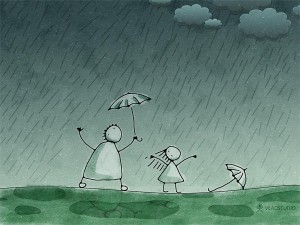
CC image “Hamster wheel” courtesy of sualk61 on Flickr. Some rights reserved.
I’ve been thinking a lot about lists lately, because my life seems to be filled with them.
I have to-do lists for the day, the week, the month. Shopping lists, story brainstorming lists, lists of essay ideas, speech ideas, blog post ideas, blog improvements, lists of birthdays, of appointments, packing lists, lists of items I need to repair on my car, lists of my student loans, and so on.
Sometimes I think the lists are a blessing. The most obvious benefit is an increased level of organization, coupled with a sense of control over my life. Often, though, I feel trapped by my lists. Like a hamster on a wheel, I am running, running… and seem never to be getting anywhere. My life has become a list — a list which taunts me like Sisyphus’s stone.
Let’s get organized!
The number one advantage to creating a list is organization. Organization is a big watchword nowadays. We all lead such busy lives, there’s not enough time in the day to accomplish everything. From pundits to parents, advice columns to job postings, organization is acknowledged as a universal good.
Consider the daily to-do list. A simple and effective maneuver, scribbling a to-do list takes only a few minutes, and serves as a reminder throughout the day. When we get side-tracked by unexpected events or need to prioritize, the to-do list is our friend. Groceries versus Pilates class? Vision statement or agenda prep for afternoon teleconference? Following up with Sue or Sam? Remembering what the heck was that important deadline this week?
Did you know that lists are good news for our health, too? Creating lists can help:
- reduce anxiety by giving us a sense of control over what we need to get done
- boost our brain power by using parts of our brain we otherwise may neglect
- improve focus by keeping our immediate goal in front of us
- increase self-esteem through the sense of accomplishment we get by crossing items off our list
- organize our thoughts, such as when we are faced with a tough or complex decision
Health, stress reduction, meeting deadlines, and getting all the items we need from the grocery store. Who could possibly object to the clear beneficence of the lowly and workmanlike list!
Where’s the fire?
To-do lists, grocery lists, packing lists — all of these have immediate, obvious utility. They’re not very romantic, though. Then there is our least favorite list ever (at least according to pop culture): the New Year’s Resolutions (if you’re feeling adventurous enough that you have more than one resolution, of course. I am guilty of this. I am an overachiever. Scorn me). We start this list with grand plans and fanfare. We feel bigger than life. Bring on the world!
Yet how often do we actually complete that list? Maybe we’d be more accurate calling New Year’s Resolutions our “New Year’s Ideas & Suggestions Box.” Drop in the slip of paper with your idea. As time goes by, those little slips of paper become less interesting, even, perhaps, accusatory.
Making a list — for New Year’s or otherwise — can become a stand-in for doing what’s on the list. Too often, we start with a good intention, fall into a habit, and then just continue with it brainlessly. Making lists over and over can slowly drain us of our initial passion. When we began, we were excited by the subject, the work, the company, the project… One sheet of paper couldn’t contain all our ideas. Gradually, however, our vision has narrowed until we can’t see the horizon anymore for the slip of paper.
We’ve forgotten what got us started in the first place.
Regaining Control
Like any strategy designed to help us out, keeping a list can become a self-perpetuating monster. Whether our list is a fluffy Shih Tzu or a Great Dane, we need to remember who’s in charge. I’ll give you a hint: the boss should be the one holding the leash.
Lists are a tool. Like the alphabet. In order to write effectively, we need to know how to form the letters, how they sound, and the ways to arrange them to convey meaning. But the letters themselves aren’t the meaning — they are the vessel by which meaning is made clear. We write the letters, the letters don’t write us.
Don’t get trapped on the hamster wheel. Eventually, you will need to actually write that story, shoot those pictures, finish that telephone follow-up, pack that suitcase. If you find that you’re spending a lot more time on your list than your life, remember that the brain needs playtime, too. Play hooky. You may be surprised how inspired and enlivened you become as a result.
You might even have plenty more fodder to add to your lists!
==
Do you keep track of aspects of your life using lists? Do any of your lists pertain to your creative projects? Let us know here!





